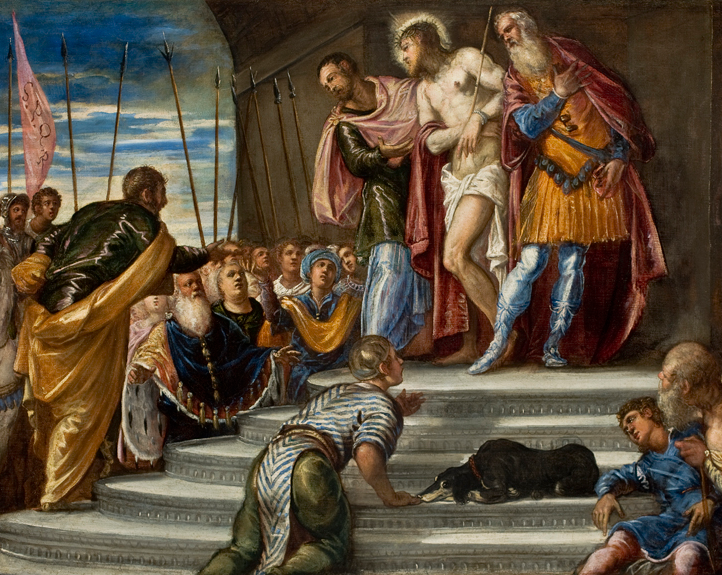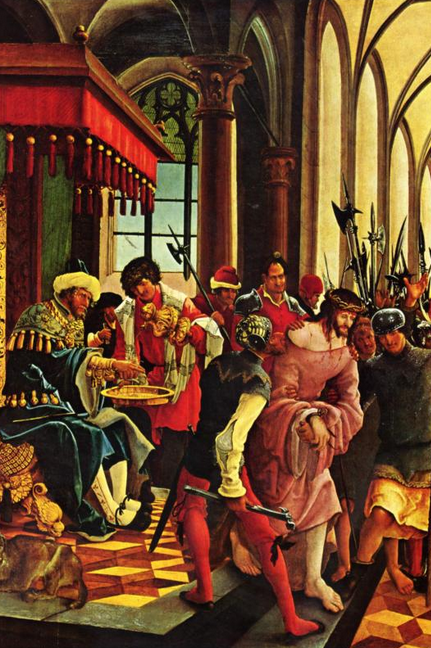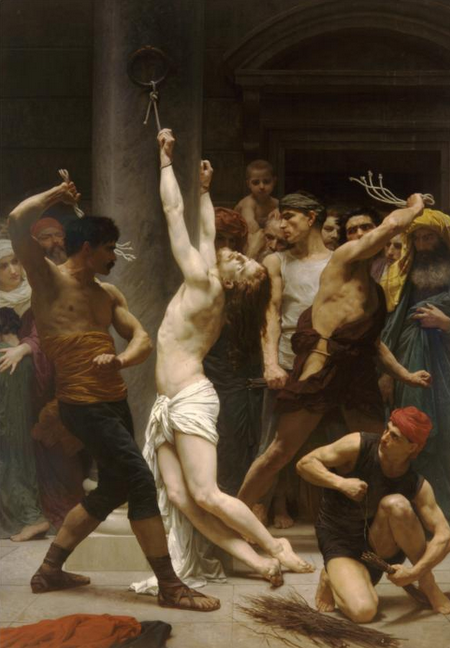Now during the feast the governor was in the habit of releasing a prisoner that the people chose. They had a famous prisoner named Barrabas. So when the multitude gathered, Pilate, who knew that they had handed him over because of envy, asked them, “Whom do you want me to release: Barrabas or Jesus, whom they call Christ?”
While Pilate was seated in the tribunal, his wife sent him the following message: “Don’t get yourself involved with this righteous man, since because of him, today I have suffered greatly in a dream.”
But the chiefs of the priests and the elders persuaded the crowd to ask Pilate to release Barrabas and execute Jesus.
“Which of the two do you want me to release?” asked the governor.
“Barrabas.”
“And what will I do with Jesus, whom they call Christ?”
“Crucify him!” responded everyone.
“Why? What crime has he committed?”
But they shouted even louder, “Crucify him!”
When Pilate saw that he was gaining nothing, but rather a riot was forming, he requested water and washed his hands in front of the people.
“I am innocent of the blood of this man,” he said, “It’s on you!”
“May his blood fall upon us and upon our children!” answered all the people.
Then they released Barrabas; but Jesus he commanded to be flogged, and he handed him over to be crucified.
The governor´s soldiers brought Jesus to the palace and gathered all the troop around him. They took off his clothes and put on him a scarlet robe. Then they braided a crown of thorns and put it on his head, and in his right hand they put a cane. Kneeling before him, they mocked, saying, “Save, king of the Jews!”
And they spit on him, and with the cane they hit his head.



